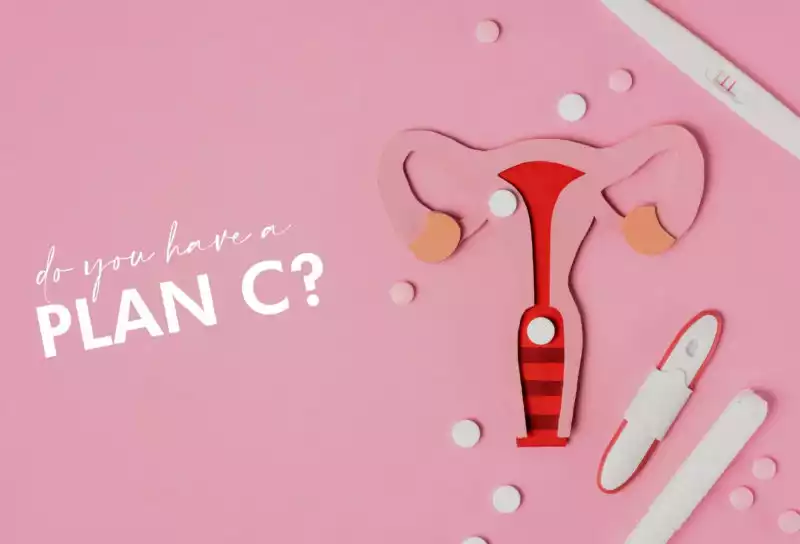
Plan B: Overview
December 01, 2023 9:39
November 03, 2024 9:14
Introduction:
When it comes to contraception options, there are numerous choices available to individuals looking to prevent an unintended pregnancy. One of the options gaining attention is Plan B, which is often referred to as “the morning-after pill.” This article will provide an overview of Plan B, including what it is, how it works, and who can use it.
However, it is essential to remember that this article serves as general information and is not a substitute for professional medical advice. Always consult a healthcare provider for personalized guidance.
What is Plan B?
Plan B is an emergency contraceptive method that can be used to prevent pregnancy after unprotected sex or contraceptive failure. It contains a high dose of levonorgestrel, a synthetic hormone that works by preventing or delaying ovulation, inhibiting fertilization, or altering the uterine lining to prevent the implantation of a fertilized egg. Plan B is not intended for regular use and should only be a backup option.
How does Plan B work?
Plan B is most effective when used as soon as possible after unprotected sex, ideally within 72 hours, although it can still be used up to 120 hours (5 days) later, depending on the brand.
There are different types of emergency contraception available, including levonorgestrel pills (Plan B One-Step, Take Action, Next Choice) and ulipristal acetate pills (Ella). These pills prevent or delay ovulation, fertilization, or implantation of a fertilized egg.
Levonorgestrel pills, commonly known as the “morning-after” pill, are available without a prescription and can be purchased over the counter. They are most effective if taken within 72 hours (three days) after unprotected intercourse but can still be used up to 120 hours (five days) after. It is important to remember that the sooner the pills are taken, the more effective they are likely to be.
Ulipristal acetate pills, on the other hand, require a prescription from a healthcare provider. They are effective for up to 120 hours (five days) after unprotected intercourse. Unlike levonorgestrel pills, ulipristal acetate is not affected by body weight and may be more effective in preventing pregnancy.
The availability of a brand varies from country to country; some brands may require a prescription, so it is essential to check local regulations and guidelines.
Who can use Plan B?
Emergency contraception can be a vital tool for individuals who have had a contraceptive failure, such as a broken condom, missed birth control pill, or sexual assault. However, there are certain factors to consider before using it:
- Not a regular method: Plan B is not intended for regular contraception. It should only be used as an emergency backup option.
- Age restrictions: Some brands of Plan B may have age restrictions, so it is essential to check the packaging instructions or consult a healthcare provider.
- Health conditions: Certain conditions, such as liver disease, may prevent individuals from using Plan B. It is crucial to discuss any pre-existing medical conditions with a healthcare provider.
- Emergency contraception does not protect against sexually transmitted infections (STIs). If there is a concern about STIs, seeking medical advice and testing from a healthcare professional is crucial.
- Drug interactions: Plan B may interact with certain medications, such as those used for epilepsy or tuberculosis. It would help to inform your healthcare provider of all the medicines you are taking.
Effectiveness of Plan B:
While emergency contraception is a valuable option for preventing unintended pregnancies, it is not 100% effective. It is estimated that levonorgestrel pills reduce the risk of pregnancy by about 75-89%, depending on when they are taken. Ulipristal acetate pills are more effective, reducing the risk of pregnancy by about 85-95%.
The efficacy of Plan B depends on how soon it is taken after unprotected sex. It is most effective within 72 hours, with reported pregnancy rates ranging from 0.9% to 2.4%. However, as time passes, its effectiveness decreases. After 72 hours, the efficacy declines significantly.
If pregnancy does occur after emergency contraception has been used, it is essential to seek medical advice as soon as possible. It is likely that despite taking emergency contraception, an unintended pregnancy may still occur.
Side Effects of Plan B:
While Plan B is generally safe, some individuals may experience side effects. Common side effects may include nausea, vomiting, fatigue, breast tenderness, irregular bleeding, and dizziness. These effects are usually temporary and resolve on their own. However, if you experience severe abdominal pain, prolonged heavy bleeding, or any other concerning symptoms, seek medical attention immediately.
Conclusion:
The plan is an emergency contraceptive option that can be used to prevent pregnancy after unprotected sex. However, it should not be used as a regular form of contraception. It is crucial to understand how it works, who can use it, and its effectiveness limitations.
Remember, this article is for informational purposes only, and you should always consult a healthcare provider for personalized advice on contraception methods and family planning.

 Français
Français Deutsch
Deutsch Español
Español Русский
Русский